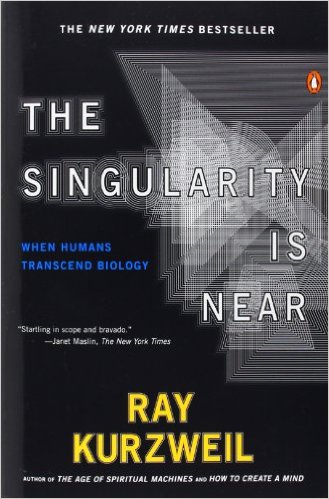This is an astonishing statistic: Youtube users now upload one hour of video every second:
The video (and accompanying website) is actually rather ineffective at really conveying why this number is so astounding. Here’s my take on it:
* assume that the rate of video uploads is constant from here on out. (obviously over-conservative)
* the ratio of “Youtube time” to real time is 1/3600 (there are 3600 seconds in an hour)
* so how long would it take to upload 2,012 years worth of video to Youtube?
Answer: 2012 / 3600 = 0.56 years = 6.7 months = 204 days
Let’s play with this further. Let’s assume civilization is 10,000 years old. it would take 10,000 / 3600 = 33 months to document all of recorded human history on YouTube.
Let’s go further with this: Let’s assume that everyone has an average lifespan of 70 years (note: not life expectancy! human lifespan has been constant for millenia). Let’s also assume that people sleep for roughly one-third of their lives, and that of the remaining two-thirds, only half is “worth documenting”. That’s (70 / 6) / 3600 years = 28.4 hours of data per human being uploaded to YouTube to fully document an average life in extreme detail.
Obviously that number will shrink, as the rate of upload increases. Right now it takes YouTube 28 hours to upload teh equivalent of a single human lifespan; eventually it will be down to 1 hour. And from there, it wil shrink to minutes and even seconds.
If YouTube ever hits, say, the 1 sec = 1 year mark, then that means that the lifespan of all of the 7 billion people alive as of Jan 1st 2012 would require only 37 years of data upload. No, I am not using the word “only” in a sarcastic sense… I assume YT will get to the 1sec/1yr mark in less than ten years, especially if data storage continues to follow it’s own cost curve (we are at 10c per gigabyte for data stored on Amazon’s cloud now).
Another way to think of this is, in 50 years, YouTube will have collected as many hours of video as have passed in human history since the Industrial Revolution. (I’m not going to run the numbers, but that’s my gut feel of the data). These are 1:1 hours, after all – just because one hour of video is uploaded every second, doesn’t mean that the video only took one second to produce – someone, somewhere had to actually record that hour of video in real time).
Think about how much data is in video. Imagine if you could search a video for images, for faces, for sounds, for music, for locations, for weather, the way we search books for text today. And then consider how much of that data is just sitting there in YT’s and Google’s cloud.
